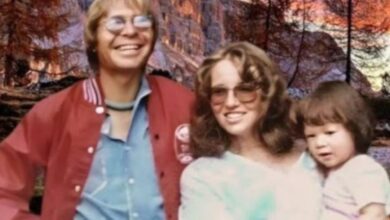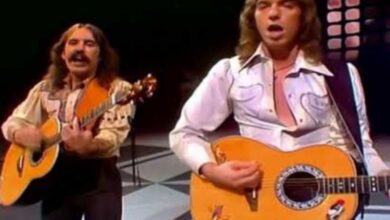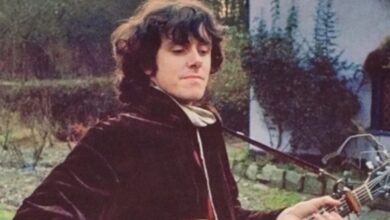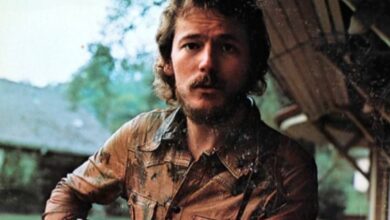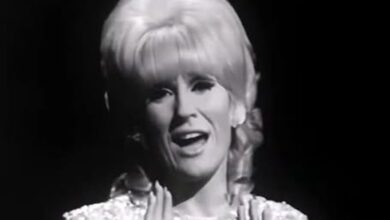The last Bee Gee takes the stage alone — Barry Gibb’s powerful and emotional return as the sole surviving legend
For the first time in his remarkable career, Barry Gibb—the final living member of the legendary Bee Gees—is stepping onto the stage entirely alone. It’s a milestone he never imagined facing, but one that means everything to him. “It’s all I’ve ever known,” Barry confesses, his voice carrying both pride and pain. “I don’t know how to do anything else.” This solo moment marks a deeply personal chapter in a life shaped by both triumph and tragedy.
The Bee Gees’ journey began as three inseparable brothers—Barry, Robin, and Maurice—who discovered their unique harmony in their early days in Australia. That magic would later translate into an extraordinary run of success: 15 number one hits, genre-defining songwriting, and the cultural takeover of Saturday Night Fever. That soundtrack wasn’t just music—it was history in the making, topping the charts for six straight months and selling more than 40 million copies worldwide.
By the late ’70s, Barry and his wife Linda settled in Miami, a city that became their sanctuary. But behind the sunny backdrop, Barry quietly battled the weight of unimaginable loss. After Maurice’s sudden death in 2003 from a twisted intestine, Barry spiraled into grief. Linda, with her trademark honesty, finally pushed him to return to what he loved. “I was sick of him just sitting around,” she said, noting that even in sorrow, his voice still sounded “so fantastic.”
Maurice’s death struck harder than Barry expected, not only emotionally but in how it fractured his bond with Robin. Years before, they’d already endured the tragic loss of their youngest brother, Andy, to drug abuse. Now, grief had turned inward. By 2009, both surviving brothers admitted they were hesitant with each other—afraid, even. Barry believed Robin’s silence was his way of holding on to their trio. Robin, on the other hand, feared moving forward without Maurice would break what was left of their legacy.
Still, amid the tension, a bittersweet reunion unfolded that same year. At Barry’s Miami studio, he and Robin sang together once more. It wasn’t polished or perfect—it was raw, nostalgic, and layered with history. Sadly, it would be their last duet. Barry noticed Robin was struggling physically, each note more difficult than the last, and a quiet urgency hung over the session.
In 2012, cancer took Robin. Barry, looking back on their final conversations, recalls telling his brother something he hoped would bring peace. “The dream already came true, Rob. You can stop worrying. No one sings like you.” The heartbreak of losing both brothers was compounded by the silence that followed. For Barry, that silence is ever-present. The void of their voices—once his daily companions—is now a haunting echo.
Launching a solo tour at 67 came with hesitation. Barry feared the vulnerability, admitting it felt like “being almost naked.” But he wasn’t truly alone. His son Steven, a heavy metal guitarist, joined him on stage. So did Samantha, his niece and Maurice’s daughter. Their presence has turned the stage into a space for shared remembrance. One especially moving moment comes when Barry and Samantha sing “How Can You Mend a Broken Heart.” In those harmonies, sorrow and healing intertwine.
Performing while footage of his brothers plays behind him is still a challenge. Barry often has to look away, unable to face the images without emotion welling up. “It’s every day,” he says softly. “It’s every night. It doesn’t leave.” The question of why he’s the one still standing remains unanswered, a weight he carries through each performance.
And yet, through the grief and the memories, Barry Gibb finds something unexpected on this journey—something almost sacred. Audiences rise to their feet not just in admiration, but in solidarity. “It feels like a rebirth,” he admits. “It’s like therapy. You feel alive. It’s about embracing the now.” This tour is more than a concert. It’s a living tribute, a cathartic act of endurance, and a powerful reminder of music’s ability to connect the past to the present.

